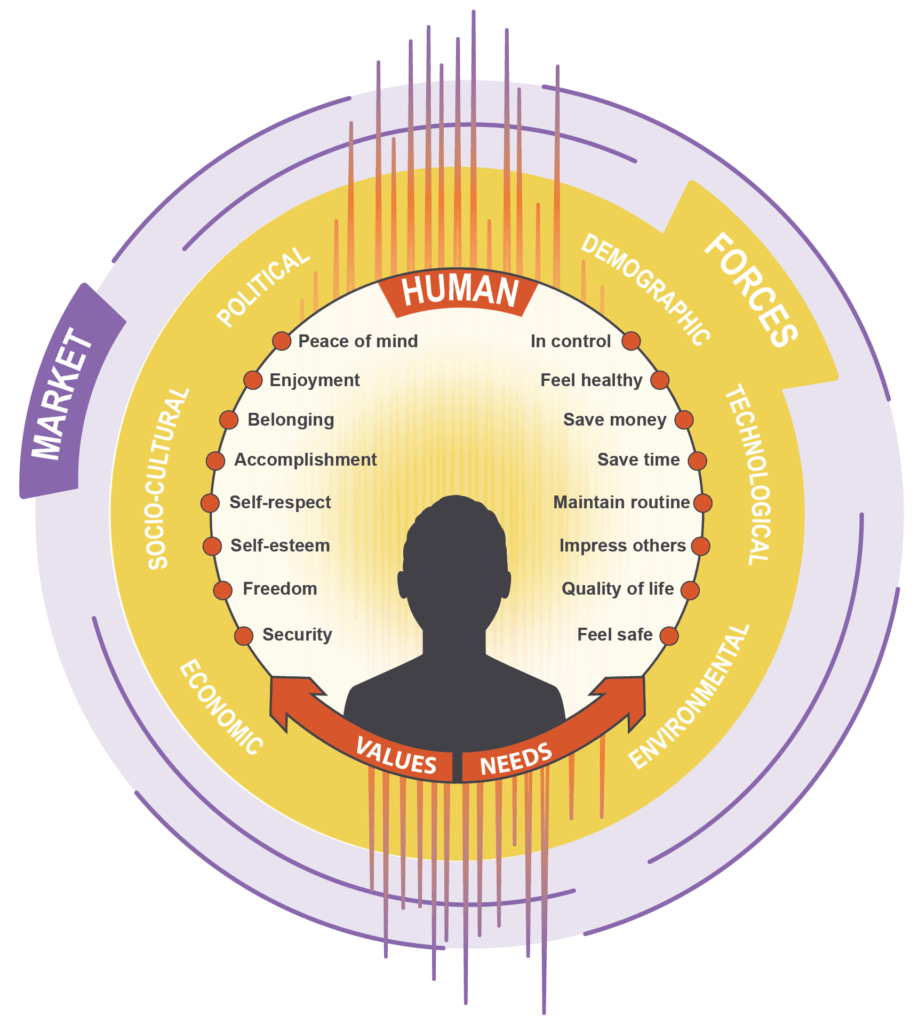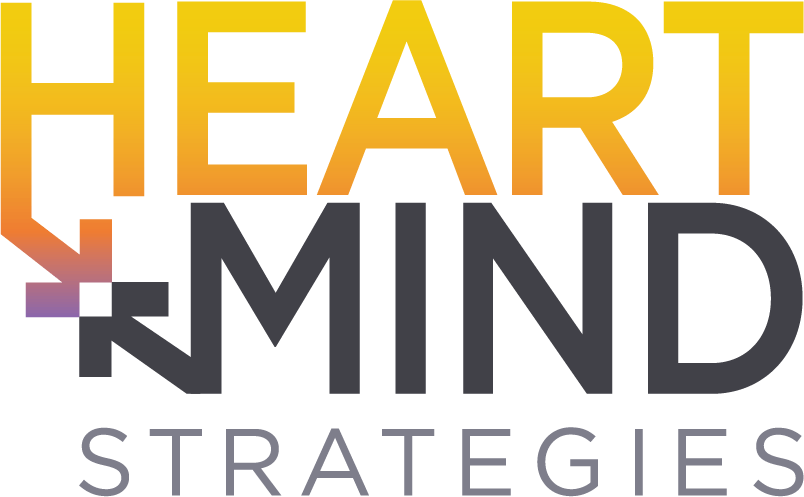By Katie Plocheck Hunt
Over the last seven months, we have seen a shortage of many things, but discussion around the impact of COVID-19, both on our current day-to-day lives and on the changes the virus is projected to have long-term, has not been one of them. And while we have a seemingly good handle on what those changes are today—a mass exodus out of the workplace and into our homes, the increasingly rapid digitization of our lives, and the decrease of social and institutional trust, for starters—how can we know which of these shifts will actually last and which are mere fleeting moments at a very specific arch of human history? We find ourselves, after all, in an intense age of precarity. And just as there is no shortage of discussion, there is likewise no shortage of change. The virus has been a great accelerator of underlying realities and trends that were already playing out, to a large extent. It has also laid bare existing human needs that were likely lying dormant, carrying on unmet, or at best, being fulfilled but not yet reaching their full potential.

At Heart+Mind, we look at the impact of forces like the coronavirus through a three-pronged lens that places the human at the center of the experience. It is the human, we believe, and his or her decisions, that have lasting value in a marketplace full of choices. We understand how cultural forces and the marketplace act upon and affect human values, which give importance to the needs that brands, organizations, and products can address. In turn, we understand how the human experience drives the trajectory of these shifts.
RELATED: Experts in Human Decision Making
The coronavirus is, by many measures, in a league of its own. Not often does a singular force spin such a voracious web of far-reaching repercussions. From the collective to the individual; from the lofty plane of global political imagination to the daily task of creating a grocery list; the virus’s reach is agile, incisive, and indiscriminate.
But is it the virus itself that holds such acute power? As we sought to answer the question of which shifts might last and which will not, it was apparent that it is not about the singular—or even the collective—strength of a force that matters first and foremost, but the number and importance of the human needs it plays upon and activates. At first glance, it appears that those shifts having the most impact are those in which the coronavirus “joined”; to summarize the words of editorialist David Brooks, the virus hit like a hurricane in the middle of an earthquake—an intensifier of the ongoing upheaval of life as we know it. Indeed, we see great impact around rapid gentrification and a widening disparity between the rich and the poor, around social unrest amplifying movements like Black Lives Matter and an ever-growing populus mentality, and around an increased shift of brands—and the technologies they leverage—adapting to higher levels of digital demand.
But, there is no less power behind newer, and more singular shifts occurring. Working and nesting from home (many with children in tow), a clamoring for basic resources on a mass scale, and a propulsion of new ways to self-entertain and find connectedness, are each direct outcomes of the virus’s brunt and have borne equal weight upon the human reality.
At the center of all of these trends and shifts are core human needs and values giving the virus and its accompanying forces velocity. In short, those shifts that matter most and that have the greatest “sticking” power are those that play upon and awaken the highest number of needs—needs that will last far beyond the life of the virus. While it may appear that the most “sticky” of shifts are those that the virus intensified, it is just as likely, if not more, that those emergent and more singular forces are as much here to stay.
RELATED: Understanding Consumer Values to Create Relevant Communications
Working from home, for example, has been a direct result of the necessity of a short-term, albeit critical, need for safety. But this (new to some) trend has subsequently exposed people to needs they might not have previously been aware of, or at the least, able to address. People around the world are seeing increased amounts of time freed up from the daily commute—time gained to spend with family, to cultivate a new hobby or multi-task. Needs not only for safety but for efficiency, quality time, connectedness, and more have created a reality in which working from home is likely here to stay. Companies and tech platforms have had to follow suit, adapting to these new needs, and helping pave the path to meet them.
Another key shift has been the ways in which people are addressing the need to belong. From virtual classes to online wine/cooking groups, to family Zoom sessions and drive-by birthday parties, we are witnessing workarounds for heightened isolation. But, we have also seen needs for comfort and freedom crack open, as many enjoy the lack of attachment to a social schedule, increased solitude and alone time.
What does all of this mean for understanding the lifeline of trends and behaviors? It means we need to step back from the phenomenon itself and more deeply understand the human needs and values fueling them. If we truly examine the events and behaviors as the tangible manifestations of human needs and values in action, we can not only better understand them, but be more prepared as brands and services to help address and fulfill them. And perhaps even more importantly, we can extend beyond just addressing them, and begin to listen to and learn from their presence, creating a reality that not only anticipates the next set of needs, but also helps to cultivate them.

About the Author
Katie Plocheck Hunt is a Senior Strategy Director at Heart+Mind Strategies, where she works to deploy thoughtful marketing, branding and organizational thinking around clients’ challenges. Her portfolio includes clients like the Gates Foundation, Google, Boeing, and Johnson & Johnson.
In addition to her work experience, Katie holds a Master’s degree in Sociocultural Anthropology from Brandeis University where she focused on identity theory and honed her ability to not only see complex narratives at play, but to understand how those “stories” can be applied to client business. Today, she is passionate about focusing on human needs in the business landscape, and weaving together all the dynamic systems at play in our world to help clients.
